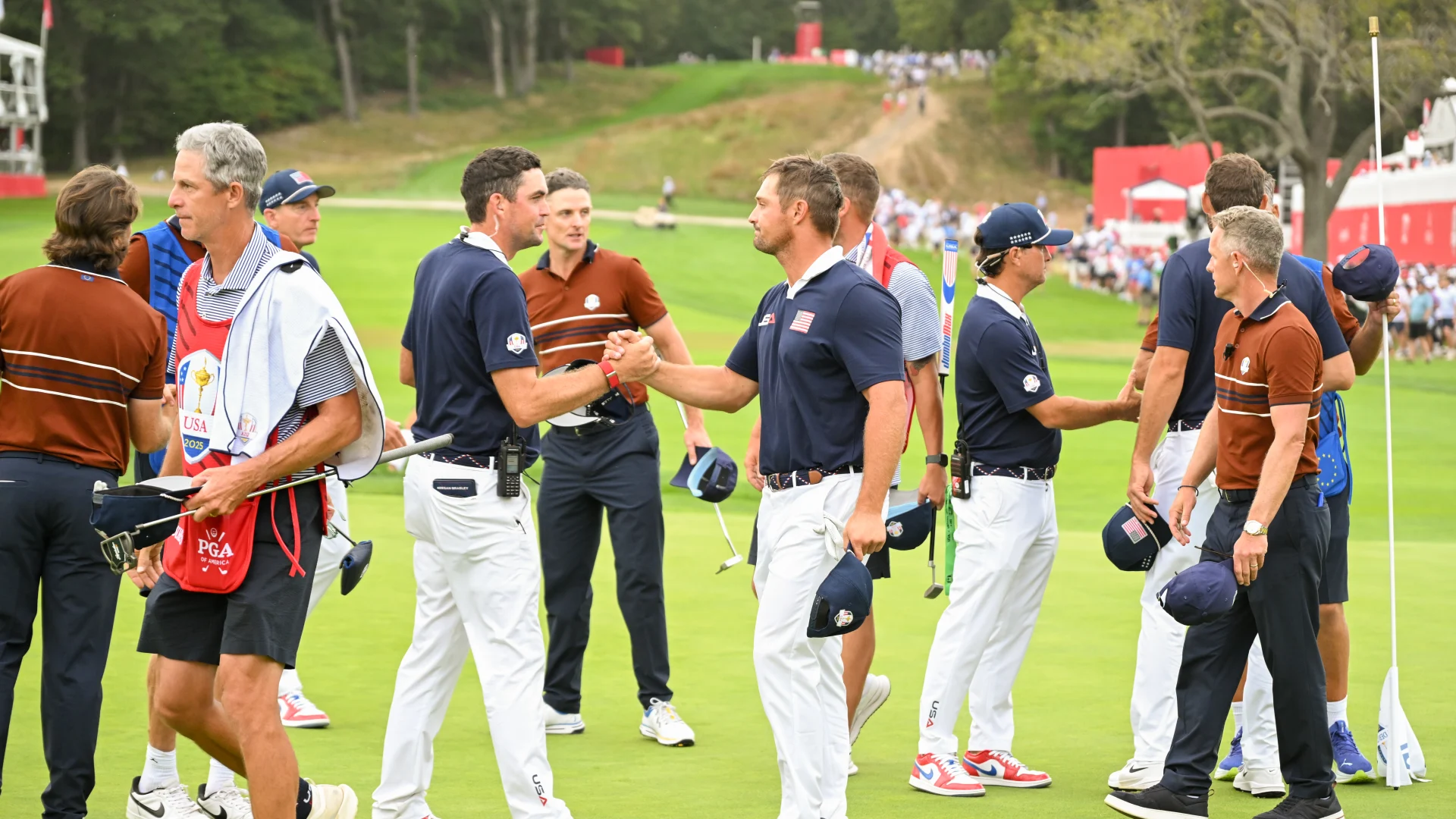The knee-jerk reaction to a Netflix show didn’t consider the fact that Bradley, still in the back end of his golf prime, could play well enough to make the team as a player, which he did. If Mickelson had been the captain in 2025, it’s highly likely he’d have chosen Bradley, whom he has a longstanding friendship with, as a player. Instead, by being named captain, Bradly was put in a lose-lose situation, opting to remain sidelined instead of naming himself ahead of another American player.
Bradley’s captaincy was made, in part, to break the status quo. The passionate New Englander wasn’t part of the “old guard,” he was young and in-tune with modern analytics that have made Europe so successful in recent years.
Except, he wasn’t. He was Zach Johnson without the green jacket.
DataGolf had the pairing of Collin Morikawa and Harris English ranked 132nd of 132 possible Ryder Cup team combinations, yet Bradley paired them together in the opening Foursomes session. Predictably, the mismatched duo got steamrolled, 5 & 4 to Rory McIlroy and Tommy Fleetwood. Rather than owning the mistake, Bradley doubled down, putting them back out in Saturday Foursomes for a rematch against McIlroy and Fleetwood. They lost once again, 3 & 2.
When asked why he decided to play Morikawa and English again on Saturday despite their poor performance, Bradley said “They were really bummed out that they lost their match [Friday]. They were eager to get back out on the course, and that’s why we did that.”
Analytics, in other words, were a non-factor.
Another crucial error Bradley made was in the course setup. The rough was cut down, making tee to green play much easier than you’d expect at Bethpage Black. That decision turned the Ryder Cup into a putting contest against a team that was much better on the greens. From tee to green, the United States matched Europe, but Europe outperformed the United States by more than 12 strokes on the greens during the decisive first two days.
